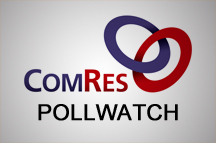The rise in childhood obesity may be levelling off, but it remains the case that the number of obese people in Britain has more than trebled in the past 25 years.
 The policy implications of the problem are very significant, and new ComRes polling confirms the unprecedented pressure facing the food and beverage industry to address it. Three-quarters of MPs (76%) think retailers need to “take more responsibility” for levels of obesity than they do currently, and only 17% believe the industry is already taking enough action.
The policy implications of the problem are very significant, and new ComRes polling confirms the unprecedented pressure facing the food and beverage industry to address it. Three-quarters of MPs (76%) think retailers need to “take more responsibility” for levels of obesity than they do currently, and only 17% believe the industry is already taking enough action.
Products high in sugar have come under particular scrutiny. In the firing line has been sugar consumption – alongside alcohol and tobacco – as priorities for future regulation. Consequently, the momentum behind government intervention on the marketing, formulation and pricing of food and drinks high in sugar appears to be building. Almost half of MPs (48%) now indicate that they would support a tax on sugary drinks and high fat foods. This is echoed by other tiers of government: more than two-thirds of urban councillors (69%) would support a tax on sugary drinks.
In response, the industry has pointed to progress made through the Public Health Responsibility Deal and other initiatives - such as Tesco cutting three billion calories from its soft drinks since 2012, and consumers being given greater choice (and thus greater responsibility for their consumption decisions) through the development of low or zero calorie products.
Government agencies and even celebrity chefs have also sprung into action. Parents are being encouraged to cut back on the amount of sugar they feed to children in a new Public Health England Change4Life campaign, health campaign groups such as Action on Sugar are warning that high sugar diets are one of the main factors increasing levels of obesity and type-2 diabetes, and Jamie Oliver has described sugar as “definitely the next evil”.
The Labour Party is also sufficiently concerned to have made sugar consumption one of its key public health priorities – further increasing pressure on the food and beverage industry. Shadow Health Secretary Andy Burnham has promised that a Labour government will “take robust action to protect children from harm where voluntary measures have failed.” He went on to state that this included regulation which would substantially limit the amount of sugar (as well as fat and salt) in food marketed to children, and changing food labelling to help people better understand what they are consuming. Mr Burnham has also sought to link this drive with the future affordability and sustainability of the NHS. By linking lifestyle choices to NHS sustainability, he is taking the issue to a new plane: January 2015 ComRes polling revealed that the NHS overtook immigration as the top concern for voters*.
But is there public appetite for such regulation? Evidence suggests that there is, at least to some extent. ComRes research found majority public support for controls on advertising to children food and drink products which are high in sugar (82%) – one of Labour’s key proposals. Similar levels of public support exist for compulsory health warning labels on food and drinks which are high in sugar (81%), and legal maximum limits on the amount of sugar allowed in food and drinks (71%).
 Although Labour wants an even more interventionist approach, they need to be careful not to damage a UK food and beverage industry which employs around 20,000 people directly and is worth around £7.7 billion annually to the UK economy.
Although Labour wants an even more interventionist approach, they need to be careful not to damage a UK food and beverage industry which employs around 20,000 people directly and is worth around £7.7 billion annually to the UK economy.
Also, while it is one thing having majority support for individual policy proposals, most voters think it is not the job of government to tell people what is good or bad for them (60%), while a similar proportion think the government is too involved in people’s daily lives (57%). This poses a real challenge to policy-makers – the public recognise that obesity is an issue that needs to be addressed but they want to be able to make informed decisions about their own consumption and take responsibility for their health. And, as with the hostility which greeted the Government’s proposals for Minimum Unit Pricing of alcohol, the public get distinctly tetchy about using fiscal measures to change people’s behaviour if it means the household budget gets clobbered.
So it is not only Katie Hopkins who is bothered about Britain’s obesity problem. It is now firmly on the political radar. The industry therefore must find a way of reassuring consumers and politicians alike that they really do want more healthy customers. The alternative will be a gradual, chronic reputational attrition of an industry sector which deserves recognition for the fact that it both employs and feeds millions of people every day.
*Half of Britons (50%) now list the NHS as one of their top three priorities, up by 11 percentage points from 39% last month.
Author:
Rob Melvill
Research Team Lead: Food & Beverage
More information:
To sign up to receive the ComRes Pollwatch via email please visit their website.












